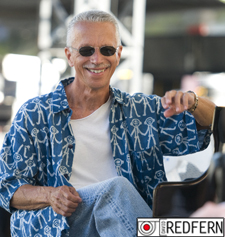 Keith Jarrett, born May 8th 1945, is an American pianist and composer who performs both jazz and classical music. Jarrett favored jazz over classical from a young age and actually turned down the opportunity to study classical composition in Paris with famed musical teacher Nadia Boulanger. Instead he took his own path through High School, Berklee College of Music and eventually settled in New York in the 1960s.
Keith Jarrett, born May 8th 1945, is an American pianist and composer who performs both jazz and classical music. Jarrett favored jazz over classical from a young age and actually turned down the opportunity to study classical composition in Paris with famed musical teacher Nadia Boulanger. Instead he took his own path through High School, Berklee College of Music and eventually settled in New York in the 1960s.
Throughout the 1960s Jarrett would become recognised as an accomplished musician and at the start of the 1970s, Jarrett started to perform with Miles Davis. He has often cited Davis as a vital influence, both musical and personal, on his own thinking about music and improvisation.
Jarrett has commented that his best performances have been when he has had only the slightest notion of what he was going to play at the next moment. He also said that most people don’t know “what he does”, which relates to what Miles Davis said to him expressing bewilderment – as to how Jarrett could “play from nothing”. What Jarrett did during his most creative solo concerts seems to have been to have put himself into a meditative ‘alterted state of consciousness’ which facilitated the flow of many brilliant and original musical ideas. In the liner notes of the Bremen Lausanne album Jarrett states something to the effect that he is a conduit for the ‘Creator’, something his mother had apparently discussed with him.
One of Jarrett’s trademarks is his frequent, loud vocalizations (grunting, squealing, and tuneless singing). Jarrett is also physically active while playing, writhing, gyrating, and almost dancing on the piano bench.
However, Jarrett is notoriously intolerant of audience noise, including coughing and other involuntary sounds, especially during solo improvised performances. He feels that extraneous noise affects his musical inspiration, and distracts from the purity of the sound. As a result, cough drops are routinely supplied to Jarrett’s audiences in cold weather, and he has even been known to stop playing and lead the crowd in a group cough.
In 2003, Jarrett received the Polar Music Prize, the first (and to this day only) recipient not to share the prize with a co-recipient and in 2004 he received the Léonie Sonning Music Prize.

